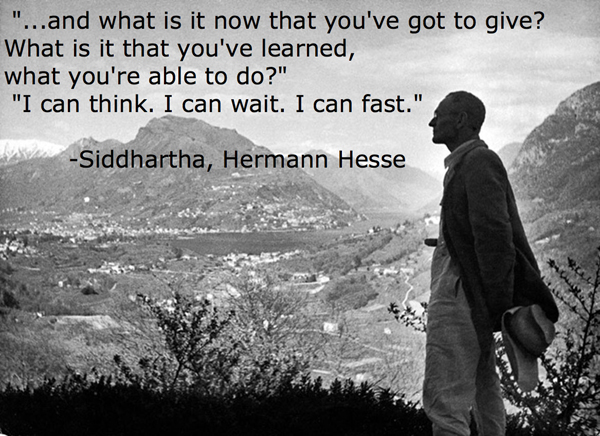How it is possible to see perfection in everything
The protagonist in German writer Hermann Hesse’s “Siddhārtha” novel (1921), in the beginning, runs a pious and secure life special to Brahman son, then he goes to the forest to Samanas (hermits) and becomes one of them. In this “status”, Siddhārtha meets Buddha, but ultimately he does not want to join him, he is trying to find his own path, he goes to the city and lives a secular life, he becomes a rich man, and escapes from there. Eventually, the protagonist of the novel (byword) appears at the riverside and decides that his spiritual and material ambitions should be limited to crossing people from one side of the river to the other side.
At the end of the novel, Siddhārtha sees his friend, who had become a Buddhist monk and says to him, “And this is now a teaching you will laugh about: love, oh Govinda (this is the friend’s name-A.A.), seems to me to be the most important thing of all. To thoroughly understand the world, to explain it, to despise it, may be the thing great thinkers do. But I’m only interested in being able to love the world, not to despise it, not to hate it and me, to be able to look upon it and me and all beings with love and admiration and great respect.”
It seems to me that for approaching the life in such a way it is necessary to vanish from conventionality of our own “I”. This means that the person ceases to be the prisoner of his own ideas. “I am the son of a Brahman,” “I’m a hermit,” “I am Buddhist,” “I am a merchant,” even “I am a boat sailor.” The man cut off his everything realizing that no matter of what name he gives himself, he is more than it. Whatever satisfied or unsatisfied desires, sins, anger, jealousy and passion he would have in the past, whatever plans he has for the future, anyway, it is still “unequal” to this human’s essence. And this essence is Divine.
This is what Siddhārtha suggest loving in him, others and everyone. But the matter is not about only people, but also about animate and inanimate object and any situation. As cosmic perfection can be seen in the ugliest person, physically and spiritually, so as the same can be seen in any living creature, any inanimate object, as well as in any situation. Everything depends not on whether they are good or bad but the point of how we look at them: with love or judging, jealousy, hatred.
Some of the readers, reading my series of “The art of establishment”, are trying to see here remarks on the current “political situation” and make comments based on their perceptions of the situation. This series is not about the “political situation”. This “situation” is changing every day, today, people are cursing each other, tomorrow they make friends, but still one can see a manifestation of the highest perfection in all of this. If you wish, a lesson so that this cursing and making friends do not become standards of orientation. Nor our daily running about. Nor our judgments, estimates, passions that often we are unable to confess ourselves. All these are minor issues, about which we can avoid thinking. But we should approach them, to say the least, with high reservations.
At the end, one more quotation from the book of another European on Indian themes. But everyone has read this book, moreover, they have seen the wonderful cartoon of the Soviet period. Mowgli comes to an old abandoned temple where crowns, bracelets, gold, diamonds and so on are gathered. “What do you need all this? – asks Mowgli, – Is it possible to eat this?” And leaves the scene taking only the “iron teeth” (sword).
Aram ABRAHAMYAN





















































